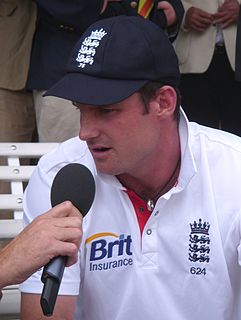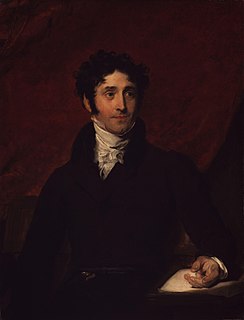A Quote by Allison Mackie
The exchange of words is a lot like a virtual handshake. Is the writer's grasp of the language strong and bold? Are the words gripping? Direct? Inventive? Sincere?
Related Quotes
As a poet and writer, I deeply love and I deeply hate words. I love the infinite evidence and change and requirements and possibilities of language; every human use of words that is joyful, or honest or new, because experience is new... But as a Black poet and writer, I hate words that cancel my name and my history and the freedom of my future: I hate the words that condemn and refuse the language of my people in America.
You've been quiet these past days," Trevanion said. "Are you going to tell me what the...exchange of words was about?" "Who said there was an exchange of words?" Finnikin asked with irritation. "When a woman says 'I hope you fall under your horse' and 'catch your death, then see if I grieve you,'" Perri said, "then there's been an exchange of words." Finnikin glared at him. "In my humble opinion.
Words were one of the most powerful forces known— or unknown— to man. The Most High had created this world with His words. And humans, who had been fashioned in His image, could direct the entire course of their lives with their words, their mouths as the rudder on a ship, as the bridle on a horse. They produced with their words. They destroyed with their words.
Sound words can't be understood through formal study of the language alone. They're felt when you immerse yourself in the culture or lifestyle that becomes a part of you. The Japanese language is abundant with onomatopoeia. Even though I've lived in Japan a long time, sound words are still an uncertain territory. And I think new words are being created every day. Even when I don't know a word I can sometimes connect it to a meaning using the sensations produced by the sounds, which feels like I'm playing with words.
The being level speaks the language of art, music, color shape and pattern directly -- a language that requires no words -- is not limited by words -- nor does it have the specificity of words and thus cannot be broken onto parts that can be manipulated or analyzed by the intellect. It must be swallowed, whole not parsed, sorted and justified.
It has not been definitively proved that the language of words is the best possible language. And it seems that on the stage, which is above all a space to fill and a place where something happens, the language of words may have to give way before a language of signs whose objective aspect is the one that has the most immediate impact upon us.




































